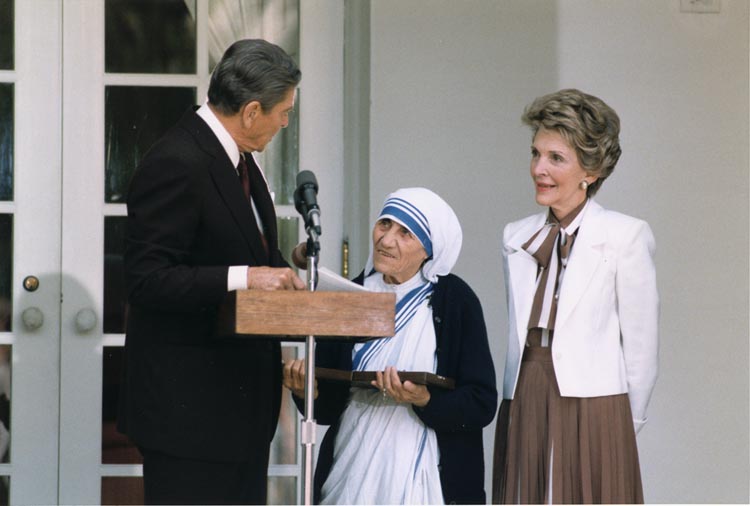2. Paco can speak English much better now
We have divided the modal verbs into five groups in order to make them easier for you to learn:
1) can and could, 2) must and ought to, 3) may and might 4) shall and should,, 5) will and would.
Let's begin with the first group: can and its past form could.
 |
| By Turélio. Creative Commons. |
Mother Teresa (26 August 1910 – 5 September 1997), born Agnesë Gonxhe Bojaxhiu, was an Albanian Roman Catholic nun with Indian citizenship who founded the Missionaries of Charity in Kolkata (Calcutta), India, in 1950. For over 45 years she ministered to the poor, sick, orphaned, and dying, while guiding the Missionaries of Charity's expansion, first throughout India and then in other countries.
By the 1970s she was internationally famed as a humanitarian and advocate for the poor and helpless, due in part to a documentary, and book, Something Beautiful for God by Malcolm Muggeridge. She won the Nobel Peace Prize in 1979 and India's highest civilian honour, the Bharat Ratna, in 1980 for her humanitarian work. Mother Teresa's Missionaries of Charity continued to expand, and at the time of her death 610 missions were operating in 123 countries, including hospices and homes for people with HIV/AIDS, leprosy and tuberculosis, soup kitchens, children's and family counselling programs, orphanages, and schools.
 |
| By Martin Hagberg. Public domain. |
In 1996 Mother Teresa was proclaimed directly by Act of Congress an Honorary Citizen of the United States. Following her death she was beatified by Pope John Paul II and given the title Blessed Teresa of Calcutta.
Adapted from Wikipedia.
1) When was Mother Teresa born?
2) What was her real name?
3) When did she win the Nobel Peace Prize?
4) In which country was she proclaimed an honorary citizen by Act of Congress?
5) Why was Mother Teresa beatified after her death?
1) We ought to win the race.
2) I can drive very well.
3) You must meet my best friends Alex and Andrés.
4) We need not talk so much.
5) Should I go to the cinema with them?
6) The children may stay up late in bed today.
|
|
My son can control his own wages.
We can’t make another appointment until next week. Can I open the window now? Can you give me a hand with this, please? |
Ability / Possibility
Inability / Impossibility Asking for permission Request |
|
Could |
Could I borrow your History book?
Could you say it again more slowly, please? We could go for a walk now. It's sunny. My friends think they could have another baby. He learned to drive a lorry so he could work for us. |
Asking for permission.
Request Suggestion Future possibility Ability in the past |
|
a) Request.
| |
|
b) Ability.
| |
|
c) Suggestion.
|
|
a) Permission.
| |
|
b) Possibility.
| |
|
c) Suggestion.
|
|
a) Impossibility.
| |
|
b) Suggestion.
| |
|
c) Request.
|
|
a) Permission.
| |
|
b) Suggestion.
| |
|
c) Request.
|
|
a) Ability in the past.
| |
|
b) Suggestion.
| |
|
c) Future possibility.
|
About the formation of the verb can in affirmative, negative and interrogative.
About the formation of the verb could in affirmative, negative and interrogative.